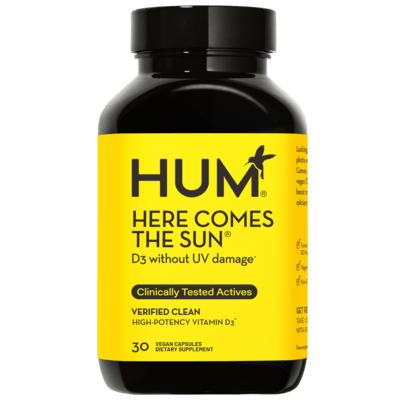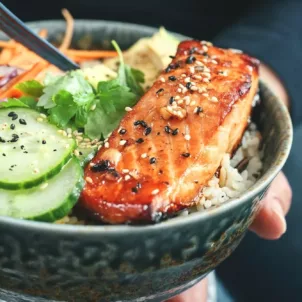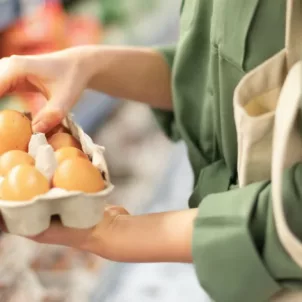Here’s What’s in An RD’s Grocery Haul While Breastfeeding
Jessica Bippen, MS, RD, discusses the best foods for breastfeeding to help you replenish, stay energized, and maintain a good milk supply.
Between breastfeeding, pumping, trying to catch some Zzzs, and staring in awe at your tiny new human, you may not necessarily be thinking about what’s on your plate (after all, the fact that you’ve found time to eat can feel like an accomplishment in itself.) But just as your nutritional needs were different during pregnancy, they also change while breastfeeding and/or pumping.
“Breastfeeding is hard work and requires more nourishment for both you and your baby,” explains Jessica Bippen, MS, RD. Women typically need between 330 and 400 extra calories a day while breastfeeding, as compared to women who are not breastfeeding. Certain nutrients are also required in order to produce breast milk, so you’ll want to pay extra attention to those.
“To meet the increased nutrient needs while breastfeeding, focus on making sure you are getting in a variety of nutrient-dense, minimally processed foods,” recommends Bippen, a mother of one.
While breastfeeding, when Bippen heads to the store, there are a few things she likes to focus on in her picks: a variety of produce (fresh and/or frozen), complex carbohydrates, protein, and healthy fats. Her grocery haul also contains specific nutrients like protein, iron, choline, vitamin A, vitamin D, calcium, and omega-3s. “These nutrients require a little more attention when you’re breastfeeding because your body prioritizes some of these nutrients to the baby.”
While that is a good thing, it can leave you depleted of those same nutrients if you’re not getting enough through your diet. Some concerns if you don’t get enough nutrients include:
- Bone loss
- Fatigue
- Weakness
Ready to load up your own grocery haul? These are the best foods for breastfeeding organized by the top nutrient focus, including the recommended daily nutritional goal for women who are lactating, according to the 2020-2025 Dietary Guidelines for Americans.
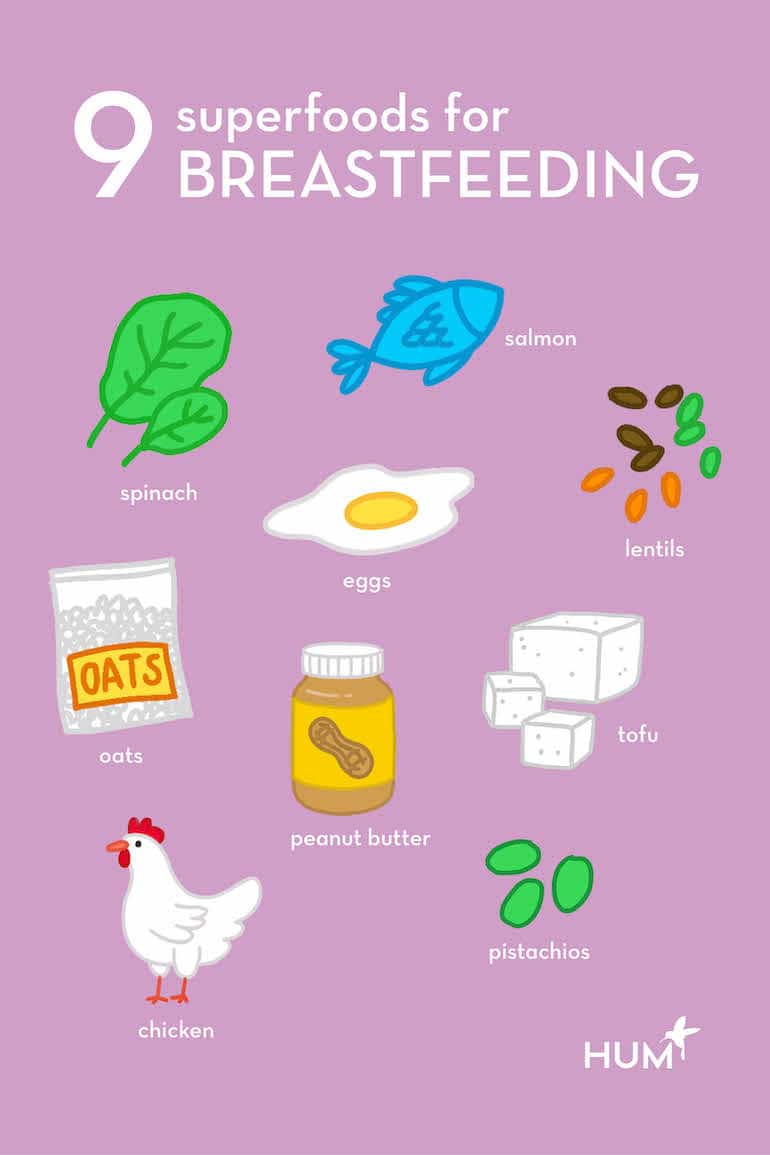
Protein
Protein has is multi-purpose for mamas: it’s essential for breast milk production, is a major component of breast milk itself and helps your baby grow, and as a bonus, can help you lose any excess weight gained during pregnancy.
Recommended goal: 71 g
Where to get it: eggs, tofu, lentils, beans, chicken, wild salmon, pistachios, peanut butter
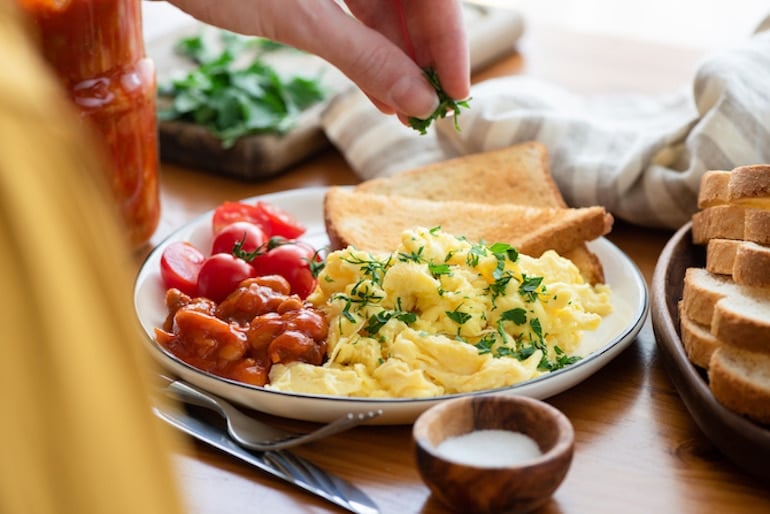
Iron
During pregnancy, iron needs are much higher than what’s needed pre-pregnancy and postpartum, but it’s still important to get iron in your diet. Low iron levels or iron deficiency may be due to postpartum bleeding or lack of iron in your diet and can contribute to fatigue, breathlessness, and dizziness.
Recommended goal: 9 mg
Where to get it: lentils, spinach, pistachios, chicken, tofu
Choline
Consuming foods high in choline while breastfeeding is directly linked to the choline levels in breast milk. Choline is a key micronutrient that supports the immune system and gut health of mom, while also helping with tissue development in baby.
Recommended goal: 550 mg
Where to get it: eggs, peanut butter
Vitamin A
Babies are born with low concentrations of vitamin A, a nutrient vital to immune function and eye health, so they must build up stores in their liver by getting it through breast milk.
Recommended goal: 1,300 mcg
Where to get it: egg yolks, sweet potatoes, carrots, spinach, arugula, wild salmon
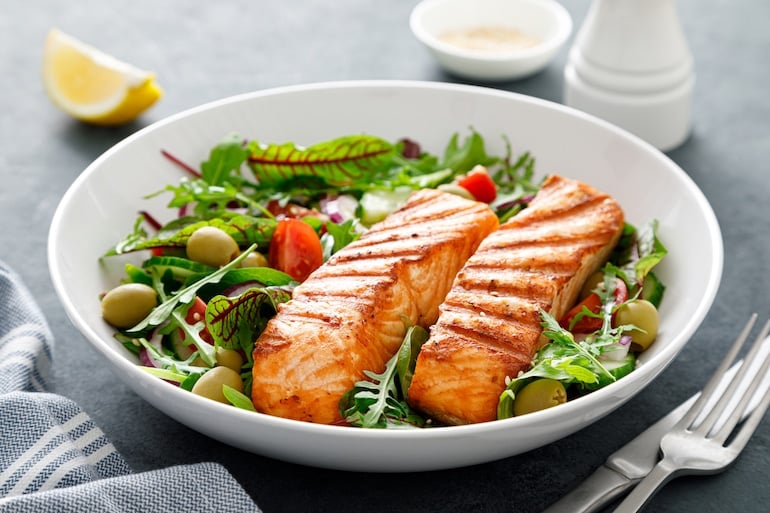
Vitamin D
An estimated 1 billion people worldwide are either deficient or have insufficient levels of vitamin D. Breastfeeding women are at a higher risk of vitamin D deficiency, research finds.
While it can be tough to get all of your vitamin D needs from food, it’s still important to work vitamin D food sources into your diet. Vitamin D supports your immune system and helps with mood regulation. Vitamin D passed through breastmilk to baby is not enough to meet their daily requirements, according to the CDC, so your pediatrician may still recommend a vitamin D supplement for your baby. Infants who don’t get enough vitamin D are at risk for rickets, a condition that causes soft or weak bones.
Recommended goal: 600 IU
Where to get it: wild salmon, egg yolk
Calcium
99 percent of your calcium is stored in your bones and teeth, and it’s estimated that women who are breastfeeding lose between 280–400 mg of calcium through breast milk daily. As a result, women can have a 4-6 percent bone loss within the first six months of lactation, found research in The Journal of Nutrition.
Recommended goal: 1000 mg
Where to get it: tofu, figs, sardines
Omega-3s
Getting in a dietary dose of omega-3 fatty acids is vital to ensure a high enough concentration of DHA, a type of omega-3, in breast milk, according to The American Academy of Pediatrics. DHA may have an impact on visual acuity in infants and it supports brain development.
Recommended goal: 200-300 mg
Where to get it: egg yolks, hemp seeds, salmon

Headed to the grocery store? Copy-paste this convenient list of food for breastfeeding mothers.
- Eggs
- Tofu
- Lentils
- Beans
- Chicken
- Wild salmon
- Pistachios
- Peanut butter
- Spinach
- Sweet potatoes
- Carrots
- Arugula
- Figs
- Sardines
- Hemp seeds
“Keep in mind, it’s important to prioritize a nutrient-dense diet, but more than likely you’ll need additional support to make sure your nutritional needs are met,” says Bippen. “Supplementing with a prenatal vitamin, omega-3 fatty acids, B12 (if vegetarian or vegan), calcium, and vitamin D may be necessary.”
